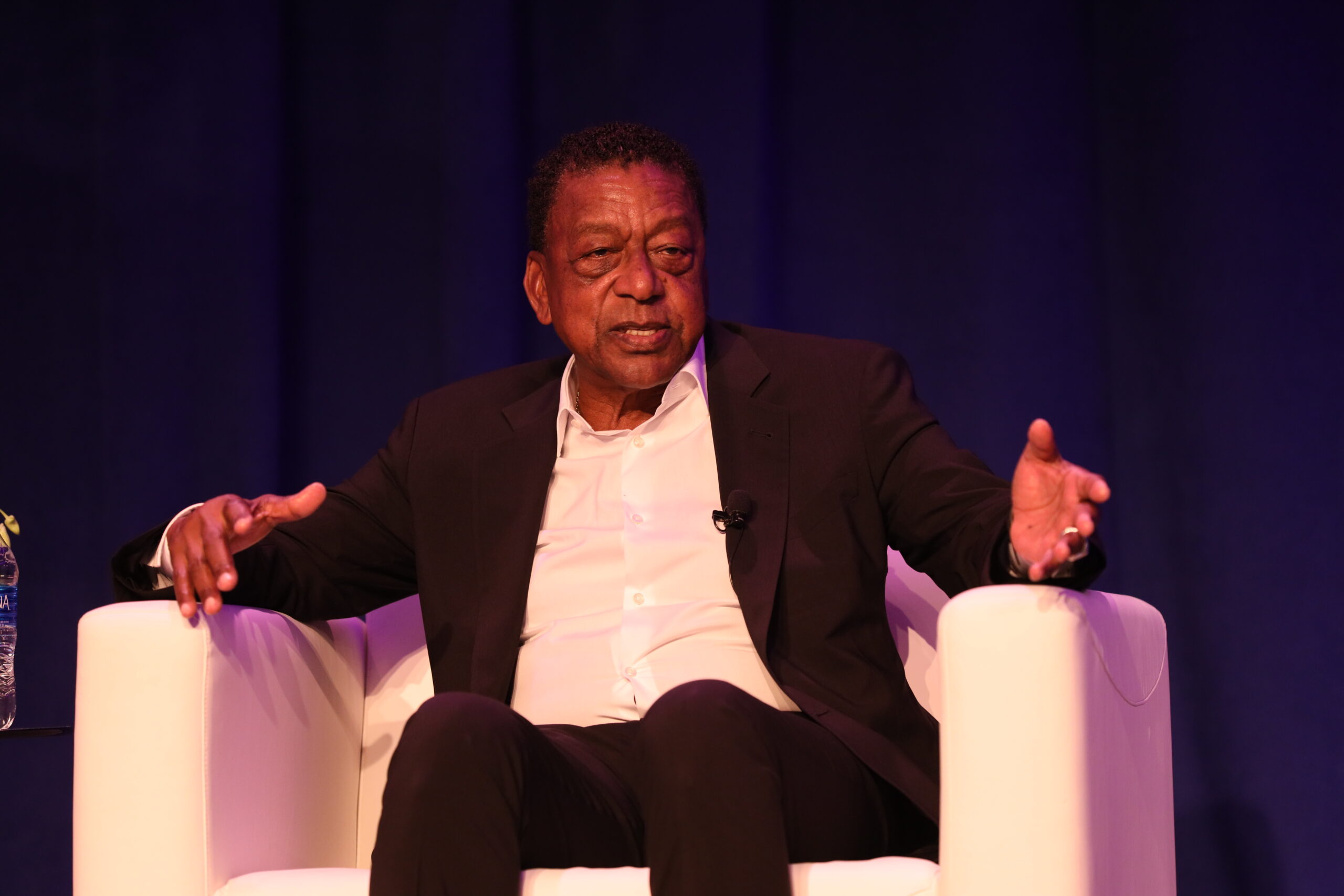
October 17, 2022
Black Equity: Robert L. Johnson Created the Most Black Millionaires In US History After Selling BET
Black Entertainment Television (BET) founder and former Charlotte Bobcats owner Robert L. Johnson discussed the network’s creation and how its sale created numerous Black millionaires.
Johnson spoke with BLACK ENTERPRISE CEO and President Earl “Butch” Graves Jr. at the annual Black Men Xcel Summit.
The two discussed how Johnson got the idea for BET from Ebony founder John Johnson (no relation) who, at the time, was making content about the rise of the Black middle class.
“The idea of BET was a spin-off of what John Johnson was doing,” Johnson, the founder and chairman of The RLJ Cos., told the audience.
“He had his stories in print, it was nationally distributed, but through a magazine, nobody was doing it in video and certainly no one was doing it on a national scale to aggregate as many Black households because the technology didn’t exist.”
According to Johnson, the revolution of satellite TV changed everything, giving channels the possibility of retaining a national audience. Johnson said he met a man who was working on creating a channel for the elderly. The two men were set to lobby the channel to the Senate Committee On Aging when Johnson took a look at the brochure his partner created.
“I looked at it and he had all of these things: the elderly buy a certain kind of product, the elderly have a certain kind of income, the elderly have a certain set of needs, and the elderly are not appropriately projected on television,” Johnson said.
“So I asked him for it and when I got it, I changed everything to Black. Black people buy a certain kind of product, Black people have a certain kind of need and Black people are ignored on television. So I took that and I said I gotta start this thing called BET.”
Johnson then had to find a small town with cable television to find out if Black people were interested in his idea. The BET founder chose Anniston, Alabama but he still had to find a place in the city to talk to Black men.
“So I looked in the Yellow Pages and there was a barber shop called Pink Junior’s barbershop, so I called and said I wanted to speak to the owner,” Johnson recalled. “I told him I’m Bob Johnson and I’m starting a new cable channel if people would be interested in a Black channel if we showed Black college football, so he asked the shop and they all said yes.”
From there, Johnson, along with partner John Malone, started BET, the first television network designed for Black people, featuring sports, movies, sitcoms and original content. BET also was the first African American company publicly traded on the New York Stock Exchange.
Johnson, who had no previous experience in the cable and TV industry, asked Malone for advice in making sure the network worked.
“He said get your revenues up and keep your costs down,” Johnson said.
The channel did well in its first years but didn’t turn much revenue until a new and exciting form of entertainment came into the picture.
“Along the way came music videos and MTV started playing videos but they wouldn’t play Black music videos, so I said there’s a chance to play Black music videos and that’s where we started and the thing about it that made BET such a success was the videos were free,” Johnson said. “So imagine a business where the cable operators pay you to carry a program, the record companies give you the content for free and the advertisers pay to speak to your audience.”
In 2001, Johnson sold BET to Viacom and BET employees, and in doing so, created a large number of Black millionaires who Johnson gave equity in BET.
“That happened because we did something most Black companies didn’t do, we turned from a company that was closely held by basically me and John Malone and some other investors, but when we took it public we created stock capital, equity,” Johnson said. “That allowed the people that worked with me to share in the ownership, so when the company went public they were given shares, and when the company was sold those shares turned into Viacom stock.
“To me, that’s what you do as a founder, you bring your people in and give them a significant piece of the commitment to opportunity so that they feel that you have a commitment to their success as much as you have to your own success.”